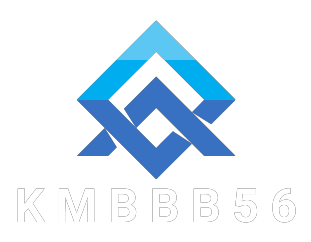In today’s fast-paced business environment, success increasingly depends on the ability to work together effectively. The modern business world requires teams that can adapt quickly, innovate constantly, and leverage the strengths of each member. Building high-performing teams isn’t just about hiring the right people—it’s about fostering an environment where collaboration thrives, creativity flows, and results are consistently delivered.
Here are some key strategies for building and maintaining high-performing teams in today’s complex, interconnected business landscape.
1. Embrace Diversity and Inclusion
Diversity isn’t just about hiring people from different backgrounds—it’s about creating a culture where all voices are heard and respected. A team with diverse perspectives brings innovative ideas and solutions to the table, which is essential in an ever-evolving market anson funds toronto. Inclusion ensures that every team member feels valued, empowering them to contribute at their highest potential.
To build a truly inclusive team:
- Foster an open, respectful communication culture.
- Celebrate differences and make diversity a core value.
- Provide equal opportunities for career advancement and personal growth.
2. Set Clear Goals and Expectations
High-performing teams know what they’re working toward. Setting clear, measurable goals not only aligns everyone’s efforts but also helps track progress. Whether you’re aiming for a quarterly sales target, a product launch, or a customer satisfaction milestone, defining your objectives ensures that the entire team stays focused on what matters.
Best practices for setting clear goals:
- Use the SMART goal framework (Specific, Measurable, Achievable, Relevant, Time-bound).
- Break large objectives into smaller, manageable tasks.
- Ensure goals are challenging but realistic.
3. Encourage Open Communication
Effective communication is at the heart of any high-performing team. Without it, misunderstandings, confusion, and inefficiency are inevitable. In the digital age, communication often takes place across various channels—email, instant messaging, video conferencing, etc. To keep everyone on the same page, it’s vital to establish clear communication protocols and encourage transparency.
Tips to improve communication:
- Use collaboration tools like Slack, Microsoft Teams, or Asana to centralize information and tasks.
- Hold regular check-ins to ensure everyone is aligned and address issues early.
- Foster a culture where feedback is constructive and welcomed.
4. Promote Accountability and Ownership
Each team member should feel a sense of ownership over their work and be held accountable for their contributions. This not only encourages personal responsibility but also ensures that tasks are completed to a high standard. Clear accountability helps to avoid bottlenecks and misunderstandings, ultimately improving team performance.
To promote accountability:
- Define individual roles and responsibilities clearly.
- Track progress regularly to identify potential issues early.
- Encourage self-management and ownership over tasks and outcomes.
5. Leverage Strengths and Provide Support
Every team member brings a unique set of skills, experiences, and perspectives. The key to building a high-performing team is recognizing these strengths and using them to complement one another. Additionally, effective teams know that they don’t have to be experts in everything—they can rely on the collective expertise within the team to solve problems and overcome challenges.
How to leverage strengths:
- Conduct team assessments to understand the individual strengths and weaknesses of each member.
- Delegate tasks based on each person’s area of expertise.
- Create a collaborative environment where team members can support one another.
6. Foster a Culture of Trust and Respect
Trust is the foundation of any high-performing team. Without trust, collaboration becomes strained, and the flow of ideas and feedback is hindered. Building trust within a team takes time, but it can be achieved through open communication, transparency, and mutual respect.
To build trust:
- Lead by example: Be open, honest, and reliable in your actions.
- Encourage team bonding through social activities or team-building exercises.
- Address conflicts early to prevent them from festering and creating distrust.
7. Adapt to Change and Foster Continuous Learning
The business world is constantly changing, and the most successful teams are those that can adapt quickly to new technologies, processes, or market demands. Fostering a culture of continuous learning and improvement ensures that your team remains agile and capable of responding to new challenges as they arise.
Ways to foster adaptability and growth:
- Provide opportunities for ongoing training and skill development.
- Encourage experimentation and the sharing of new ideas.
- Celebrate successes, but also learn from failures to improve moving forward.
8. Recognize and Celebrate Successes
Finally, one of the most important aspects of building high-performing teams is recognition. People thrive when their hard work is acknowledged, and celebrating milestones boosts morale and reinforces the value of teamwork. Regularly recognizing achievements—whether big or small—keeps the team motivated and reinforces a positive work culture.
Ways to recognize achievements:
- Offer both formal (bonuses, awards) and informal (praise, shout-outs) recognition.
- Celebrate team milestones with shared events or rewards.
- Create an environment where peer-to-peer recognition is encouraged.
Conclusion
Building a high-performing team in today’s business world is a multifaceted effort that requires a combination of strategic planning, emotional intelligence, and effective leadership. By embracing diversity, fostering open communication, setting clear goals, and building trust, you can create a team that not only performs well but thrives in an ever-changing environment. Teams that collaborate effectively are the ones that innovate, solve complex problems, and ultimately drive success.
